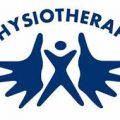Table of Contents
If you have the genuine interest to help people, interested in medical science and health, good with your hands; as well as looking for an active; and widely varied job, then being a physiotherapist might just be for you.
What is a physiotherapist?
A physiotherapist is a health professional who evaluate and treat people suffering from wide variety of physical conditions caused by ageing; illness or diseases. They use non-surgical treatments to help alleviate the pain, manage the condition; improve movement and restore their patient’s functionality and improve their quality of life.
The Path to Physiotherapy Career
There are lots of ways you can choose from to have a career in physiotherapy; and these ways depends on what physiotherapist field you wish to work on. For example; if want to work as a physiotherapy assistant first; then you need a Diploma Course or one of several short courses offered by different medical institutions and schools related to physiotherapy. These courses may last a couple of months to a year.
To become a licensed physiotherapist, you should get a four or five-year Physiotherapy Bachelor’s Degree.
Where to Study Physiotherapy
In Australia, you can get your physiotherapy diploma from the University, private colleges or TAFE. TAFE institutes offer different Diploma level qualifications, like Diploma of Practice Management; which will help student get accepted for higher physiotherapy education. These courses usually include combination of theories and practical lessons for clinical placements. Private colleges offer Certificate, Diploma and/or Advanced Diploma levels, as well as short term courses; like Clinical Practice Management and Assessment and Treatment of Sports Injury.
In the UK, you need to complete either an undergrad degree or an accelerated postgrad course in physiotherapy approved by the Health Care Professions Council (HCPC) before you can be registered in HCPC. There are also grade requirements for specific subjects such as biological science, math, English language, and particular science subjects.
There are also work-based programs in some Universities approved by the HCPC aimed to teach students and provide experience for around 2-years; such as assistant practitioner or physiotherapy assistant.
In United States, you can also get your education from universities or colleges. And depending on the type of physiotherapy career you want, you can enroll in other institutions dedicated for the specific field of physiotherapy; such as sports physiotherapist requirements, occupational health, mental health, intensive care, etc.
Subjects You Need to Study Prior to University Acceptance
Different country and different university have different requirements for physiotherapist requirements acceptance. Usually though, universities will require good scores in Biology, Chemistry, English, Health, Mathematics, Physics, and Physical Education. For other courses, students are required to take the Undergraduate Medical and Health Science Admission Test; and go through the interview process.
Some courses for Physiotherapy include:
- Bachelor of Physiotherapy
- Bachelor of Exercise Science/Bachelor of Physiotherapy
- Bachelor of Applied Science, Physiotherapy
- Graduates who wish to specialize in a specific field of physiotherapy, will need to complete the science degree and finish the 2-year Master of Physiotherapy degree.






 I love to write guides for those seeking a career. My books are written for everyone in an easy to read and understandable style.
I love to write guides for those seeking a career. My books are written for everyone in an easy to read and understandable style. 